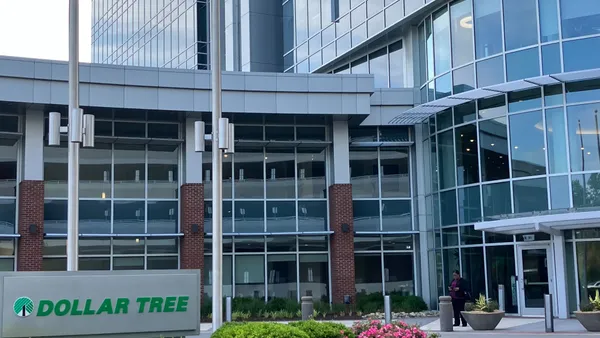The issues, operations and regulations around sustainability can be complex to say the least.
That is partly why the fashion company Ralph Lauren prioritizes traceability in its sustainability efforts.
“We have to make sure we know our supply chain well,” Halide Alagöz, the company’s chief product officer, said at American Apparel & Footwear Association’s annual executive summit in early March. “We have to go deep into transparency and traceability.”
From forced labor to waste to scope 3 emissions, understanding the supply chain is critical for compliance — and for actually solving sustainability problems.
“I always say we used to do an x-ray to scan of our partners before we say ‘yes’ or ‘no.’ Now we need to do MRIs,” Alagöz said. “That type of due diligence is really going deep, and it's very challenging. But we're building a muscle around that.”
A bevy of new laws and regulations around the world aimed at raising the bar for corporate responsibility and sustainability are driving such efforts, as are customer and investor expectations, and ethical obligations.
"I always say we used to do an x-ray to scan of our partners before we say ‘yes’ or ‘no.’ Now we need to do MRIs."

Halide Alagöz
Chief Product Officer, Ralph Lauren
Kimberley Smith, chief supply chain and sustainability officer for Everlane, highlighted traceability’s importance in complying with the Uyghur Forced Labor Prevention Act, a law meant to ban goods tied to forced labor of the Uyghur people in China.
Apparel companies think “if I’m not in China, I’m fine. That is not true,” Smith said. “It is not only about China. It is about connections. It's about all of our connections.”
Smith’s latter point was to the interrelated nature of fashion supply chains, where individual manufacturers might serve several brands with the same factory or facility.
“If I choose to bring in a material that is not transparent, and bring it into the factory that we are all in, I put you all at risk,” Smith said, adding that factory owners are the most heavily impacted when brands fail to be transparent.
Complexity is also one of the key challenges in scaling up sustainability solutions.
Patrik Frisk, CEO of polyester recycling startup Reju and former chief of Under Armour, said that building a large-scale circular system for apparel takes “understanding of how to fit into the … very complex fiber supply chain, fabric supply chain, manufacturing supply chain — 40 countries around the world, 10,000 suppliers.”
While technology to break down and recycle fabrics is emerging from companies like Reju and others, Frisk noted that actually building a circular economy requires many parts moving together at all ends of the value chain. That includes, crucially, the waste stream, where fabrics need to be sorted out from other waste in order to aggregate stocks for recyclers and manufacturers.
“It's important to get going,” Frisk said. “Because even with the best of plans, the most aggressive — and I can tell you this, we are aggressive — it's still going to take a long time to get to scale.”














